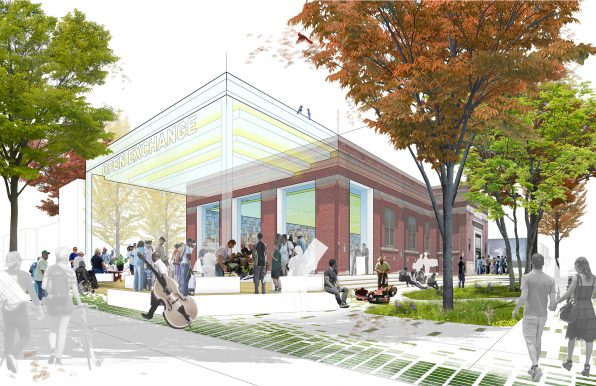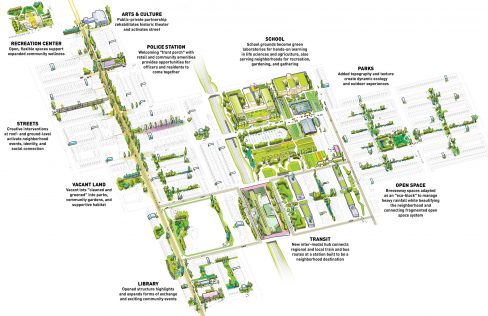Architectural Record — “Civic Lesson: New Social Infrastructure”
April 1, 2017
“A raft of projects across the country demonstrate how the public and private sectors, along with the design community, are taking new approaches to addressing economic and social segregation, often by reclaiming underused, existing civic spaces. Parks, rec centers, and libraries, among other familiar typologies, have long played an important role in providing a sense of social connectedness, but up until recently, they have been stuck in a vicious cycle of lack of investment and fluctuating public interest. …
Now cities are rediscovering this legacy of neighborhood-level investment as a way to foster social cohesion. [Carol] Coletta is one of the guiding forces behind a $40 million initiative called Reimagining the Civic Commons, funded by the John S. and James L. Knight Foundation, the Kresge Foundation, the Rockefeller Foundation, the JPB Foundation, and local funders. This initiative is investing in five cities—Akron, Chicago, Detroit, Memphis, and Philadelphia—to upgrade existing infrastructure to reflect 21st-century needs. …
Adding to the Civic Commons’ roster of notable design talent is Studio Gang of Chicago, which was enlisted to provide a general primer on imaginative solutions to unappealing civic spaces, as well as to demonstrate how to apply those design strategies to a neighborhood in Philadelphia.
In Studio Gang’s hands, a police station could better engage the community with public art on its facade, an ATM and free wifi in the lobby, or by adding a bike shop or barbershop to its first floor. A rec center could be reborn as a wellness zone by inserting an on-site health-care clinic, connecting indoor and outdoor activity spaces with floor-to-ceiling windows, and adding leasable spaces for other wellness tenants. Libraries, built for borrowing books, could become less fortresslike by opening facades with more windows, reconfiguring interior spaces to suit today’s technology, and extending facilities with covered outdoor space.”

